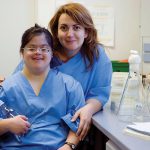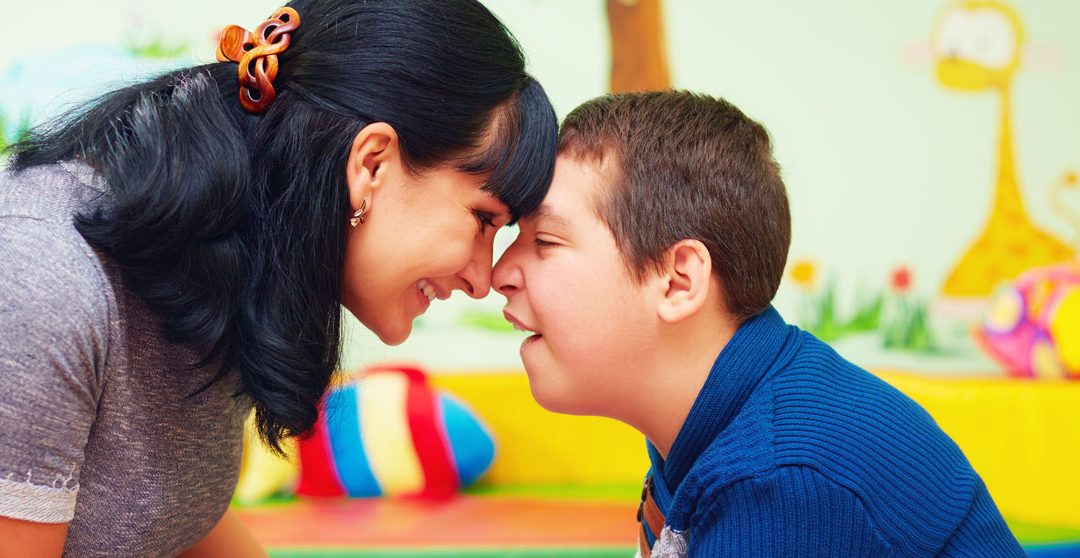Innovation Community Participation
HOPE DISABILITY
Innovation Community Participation Support
If you are searching for a skill-based program that will help you develop new skills and make progress in your life, look no further than the life skills program.
These programs focus on helping people learn how to function independently in their day-to-day lives. This means that instead of adapting their environment to meet their needs, they will adapt themselves to meet their needs. It may require them to take small steps at first, but over time they will become more engaged with their new surroundings and the world around them.
At Hope Disability Support, we believe that everyone deserves the opportunity to live as independently as possible. To achieve this goal, our life skills programs include activities such as independent living skills for adults, real life skills for children and adolescents, community integration exercises for people with disabilities as well as independent living courses for young adults and older adults who are newly employed or ready to enter employment after a lengthy period of self-employment or volunteering.
Get a Free Quote!
Innovation Community Participation Services
Innovative community participation
Ian is a person with a disability who relies on some assistive technology in order to lead a functional life. He lives alone in a rural area but has a regular social life with his friends in the local disability community. He has a disability that restricts his mobility so he uses transport services such as wheelchair-accessible buses and taxis. The service providers in Ian’s area have not been able to meet his needs with current services and so he has been looking for new ways to connect with them. He began visiting the local disabled community center, inviting the other people in his peer group to attend events and social activities there. In this way, Ian discovered that he could take advantage of the transport services the center had at its disposal and use it to meet his daily needs. Ian has found a new way to connect with the wider community and has created new opportunities and relationships for himself.
NDIS social and community participation
Diane is a person with a disability who uses a wheelchair. She lives alone in a rural area but has a regular social life with her friends in the local disability community. She has a disability that restricts her mobility so she uses transport services such as wheelchair-accessible buses and taxis. The service providers in her area have not been able to meet her needs with current services and so she has been looking for new ways to connect with them. She began visiting the local disabled community center, inviting the other people in her peer group to attend events and social activities there. In this way, Diane discovered that she could take advantage of the transport services the center had at its disposal and use it to meet her daily needs. Diane has found a new way to connect with the wider community and has created new opportunities and relationships for herself.
Capacity building NDIS examples
Julie is a person with a disability who lives in a remote rural area. A local service provider has offered to visit her to see what assistance she may need for her house and for getting to the local shops. Julie has a friend in the local disability community who can be a guide on the day the service provider visits. The local disability support center has offered to provide assistance on a weekly basis to help Julie manage her life with her disability. The local community health center has offered to provide assistance on an appointment-by-appointment basis. The local service provider has offered to provide transport to a larger town once a week, to get Julie’s groceries and other supplies. The local Disability Support Network has offered to facilitate a wheelchair carpool system with a few people in the area so that people can get to the local shops and get to and from the larger town on a regular basis. This system will help to enable Julie to maintain a regular social life.
Community participation examples
People with disability have thrived and flourished in the community over time, but have faced challenges in their participation. Community participation can mean many things including social activities, leisure activities, volunteer opportunities, and participation in community events. These activities provide opportunities for people with disabilities to interact with each other and with people who do not have disabilities. Participants can share experiences, form friendships, and learn about disabilities by working side by side. People with disability may face challenges in gaining access to community participation opportunities. For example, they may not know about programs or services available in the community, or they may face barriers to accessing these services, such as transportation, childcare, or financial limitations.
NDIS registration groups explained
The Australian government’s National Disability Insurance Scheme (NDIS) is a new type of government program that offers funding for services to help people with disabilities live more independent and meaningful lives. The NDIS is available in just two states, Queensland and New South Wales. All states are assessing their NDIS options and it is likely that the program will expand to other states in the future. When the NDIS is fully rolled out, it will be available to people with disability living in over 500 locations across Australia. People with disability living in a specific location can register with the NDIS. This means the government will provide funding for a range of services, including equipment and personal support. People without disabilities may also register with the NDIS and access the range of services and funding that are available. The NDIS is a government-run program.
NDIS social and community participation
The NDIS is a new disability scheme that has been designed to support people with disability, their families, and carers. This scheme also aims to increase the social participation and inclusion of people with disability. From 1 July 2019, the NDIS will be available to eligible people with disability who live in their own homes and who are aged 18 or over. The NDIS is a new service delivery model which is replacing the current disability support system. The NDIS recognizes the value of people with disability and their families and carers to their communities and the wider Australian community. The NDIS is being implemented in stages to better support individuals, families, and communities as they transition to the new scheme. For more information on this transition, visit ndis.gov.au.
our Support
Hope Disability Support provides support to all young people and adults with everything related to support, care, accommodation, and independent living issues. Call Hope Disability Support for all your support with the NDIS.
Clients say
Hope Disability Support's team Hope Disability Support understands us and our circumstances. They go above and beyond. We are so satisfied with their services that we will never leave.

The fact that they are available 24 hours a day is astonishing! I wouldn't have any idea what to do without Hope Disability Support. They've been there for us in times when our families needed it most.

Hope Disability Support and its experienced staff have changed my child's life for the better. I would highly recommend Hope Disability Support's services.

Previous
Next
News & Updates
We support to all youths, Young people and adults regarding anything, care , support, accommodation and independent living issues.
Innovation Community Participation FAQ
What is innovative community participation?
Community participation is a process through which people with disabilities are encouraged to take a more active role in the community. The process can start with making friends with people who have disabilities in their neighborhoods and schools. It can also include working with community organizations on fundraising events, organizing community-based activities, or speaking at community events. The goal of community participation is to help people with disabilities broaden their social networks, build confidence and self-esteem, and increase their independence. Community participation can also help people with disabilities find employment opportunities. Through community participation, many people with disabilities find that they can be more productive members of the community.
What does do NDIS social and community participation?
Social and community participation refers to activities that take place outside of the clinical setting. These services may be provided in-person, over the phone, or online. They may involve group meetings, social events, or online communications. Activities can be provided by individuals or groups who are not paid, professionals. Some services may be provided by government entities or non-profit organizations. Social and community participation is part of a continuum of services that includes clinical services, rehabilitation services, and social support services. In health care systems, it is associated with the transition of people with disabilities from health care to the community.
Are you capable of building NDIS examples?
People with disabilities can be actively involved in their communities through a variety of services and programs. Community participation helps people with disabilities gain social and emotional benefits, experience greater independence and self-determination, and discover economic gain from increased participation. It can also help people with disabilities build a support system that allows them to lead fuller lives.
What about community participation examples?
People with disabilities can participate in various community activities such as community events, fundraising campaigns, or social events. Such activities can provide an opportunity for people with disabilities to make friends, increase their independence, and find employment.
Can you explain NDIS registration groups?
A community registration group is similar to a peer support group, but with a few important differences. Registration groups are made up of people who have intellectual disabilities, whereas peer support groups are composed of people of all ages who have intellectual and other disabilities. Community registration groups are made up of people with intellectual disabilities who live in a specific geographic area. These groups are meant to bring together people with intellectual disabilities in a non-professional setting, where they can discuss common issues, share experiences, and build friendships. Community registration groups can be very helpful for people with intellectual disabilities, but they can also be a little overwhelming. It’s important to keep in mind that people with intellectual disabilities often need a lot of support, even from their own friends.
Where to find NDIS social and community participation?
Community Engagement Services: Community Centres: Community Events: Community Groups:







